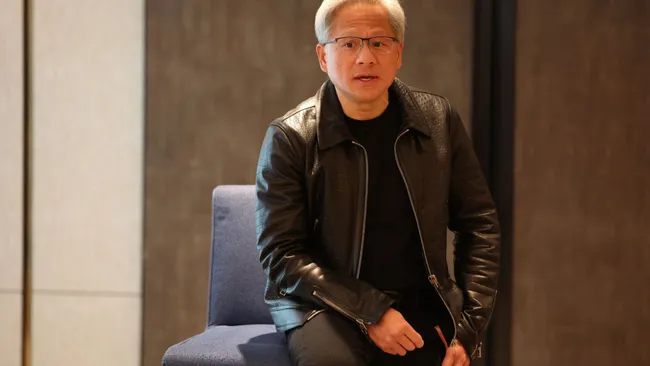With the rapid prevalence of AI, NVIDIA CEO Jensen Huang says physical AI might be the next wave.
What you need to know
- NVIDIA CEO Jensen Huang says robots will be the next wave of AI.
- Huang indicated that self-driving cars and humanoid robots will dominate this category.
- This happens as NVIDIA recently ranked as the third most valuable company in the world.
- The CEO says humanoid robots are the easiest to adapt to the world "because we built the world for us."
NVIDIA CEO Jensen Huang has had some pretty interesting insights regarding the progression of AI, including the imminent death of coding as a career option for the next generation.
While presenting at the Taiwan developer conference, Huang indicated that we might be on the verge of hitting the next wave with AI. The CEO's sentiments indicate we might be transitioning from AI-powered chatbots like Copilot and ChatGPT. Huang had humanoid robots on stage while making his presentation and stated physical AI is the next phase (via Business Insider )
"The next wave of AI is physical AI. AI that understands the laws of physics. AI that can work among us. Everything is going to be robotic. All of the factories will be robotic. The factories will orchestrate robots and those robots will be building products that are robotic."
As you might already know, huge tech corporations hopping onto the AI bandwagon heavily depend on NVIDIA's GPUs for AI advances. Microsoft and OpenAI have invested $100 billion in a new project dubbed Stargate to support their resource-hungry AI advances while simultaneously meeting their high demand for AI chips.
NVIDIA's software and hardware are broadly used for sophisticated AI advances like the production of humanoid robots. As such, the chipmaker stands to benefit if physical AI and humanoid robots are the next phase for AI in development.
Huang says self-driving cars and humanoid robots will be among the first and widely adopted robots as we venture into the physical AI phase. Self-driving cars aren't entirely a new phenomenon, especially with the rapid adoption of Tesla. Based on this premise, Huang's predictions could be partly true at the very least.
This isn't the future. This is happening now.
NVIDIA CEO, Jensen Huang
Huang's also backed up his humanoid robots reference by indicating:



3175x175(CURRENT).thumb.jpg.b05acc060982b36f5891ba728e6d953c.jpg)
Recommended Comments
There are no comments to display.
Join the conversation
You can post now and register later. If you have an account, sign in now to post with your account.
Note: Your post will require moderator approval before it will be visible.